Men Who Take Baths
Irving Chong
Canada, 2019
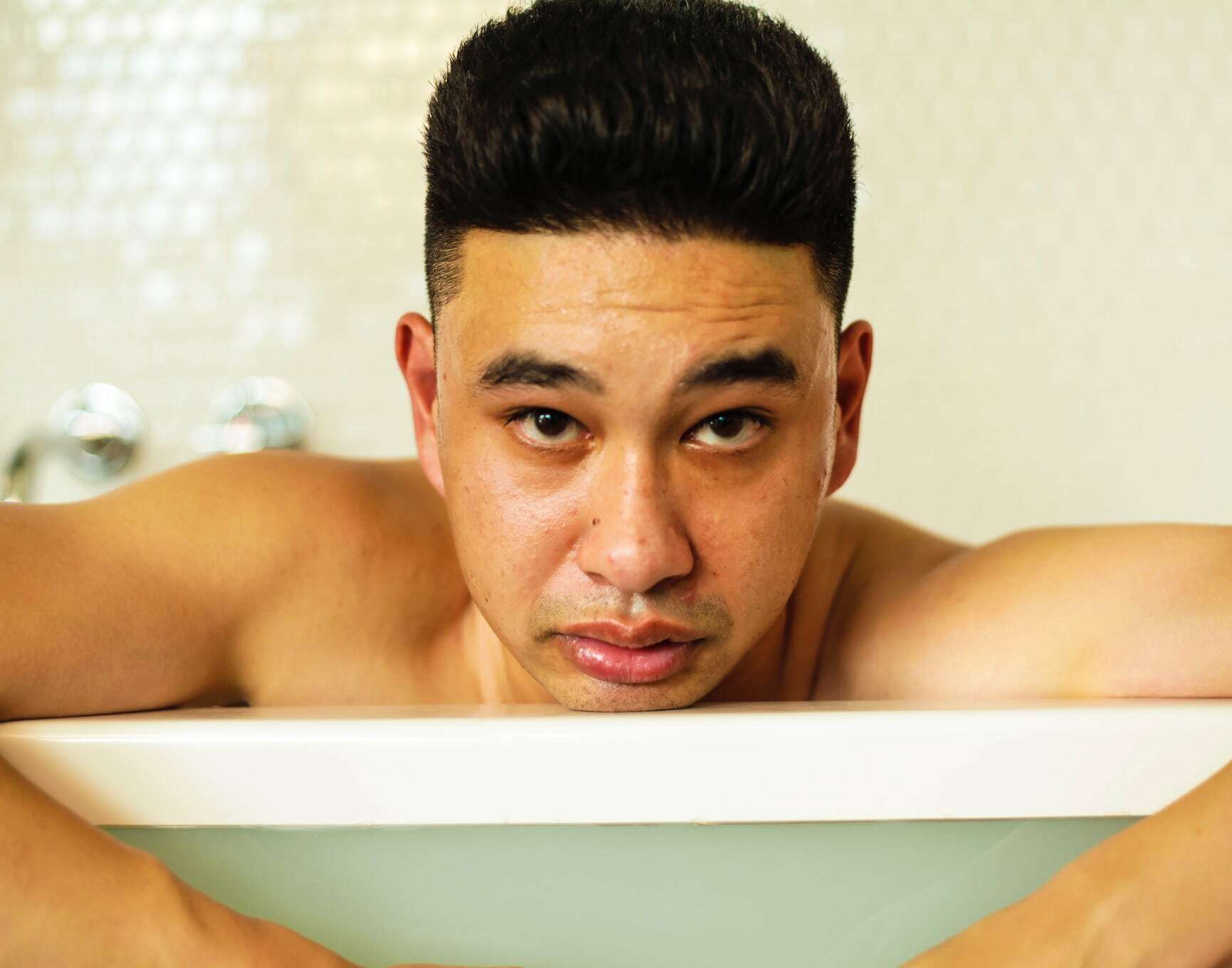
The purpose of your life is to finish the chapter in the book that your parents started to write.
Why did you say yes to doing this?
I talk about this in my personal life and on social media, and this was an opportunity to actually be part of something beyond my circle.
When you say “talk about this” what are you referring to, what is this?
The binary of feminine and masculine as structures in our systems, institutions, and society, where men have defined roles, as do women. That hard-line definition of “man” never lined up for me. I grew up in Calgary and that’s the way it was. I went to a Catholic school. Back then, I didn’t have the language to describe how I was feeling. But you leave and you see more of the world, you meet new people and hear about their experiences. I realized I had either been actively participating in terrible things or complicit in them.
What in your life has had a profound impact on you?
Making friends with women where it’s not a romantic relationship, and them telling me their worldview and experience. Me also saying that it’s fucked up and that I’m sorry that you have to deal with these things and how can I support you as a friend? Also, learning in university classes and reading about how genderized and racialized our society is.
What are some issues?
Some activism events. A lot of the groundwork is usually down by Black, Ingenious or Brown women but it sometimes doesn’t get mainstreamed until a white woman does it.
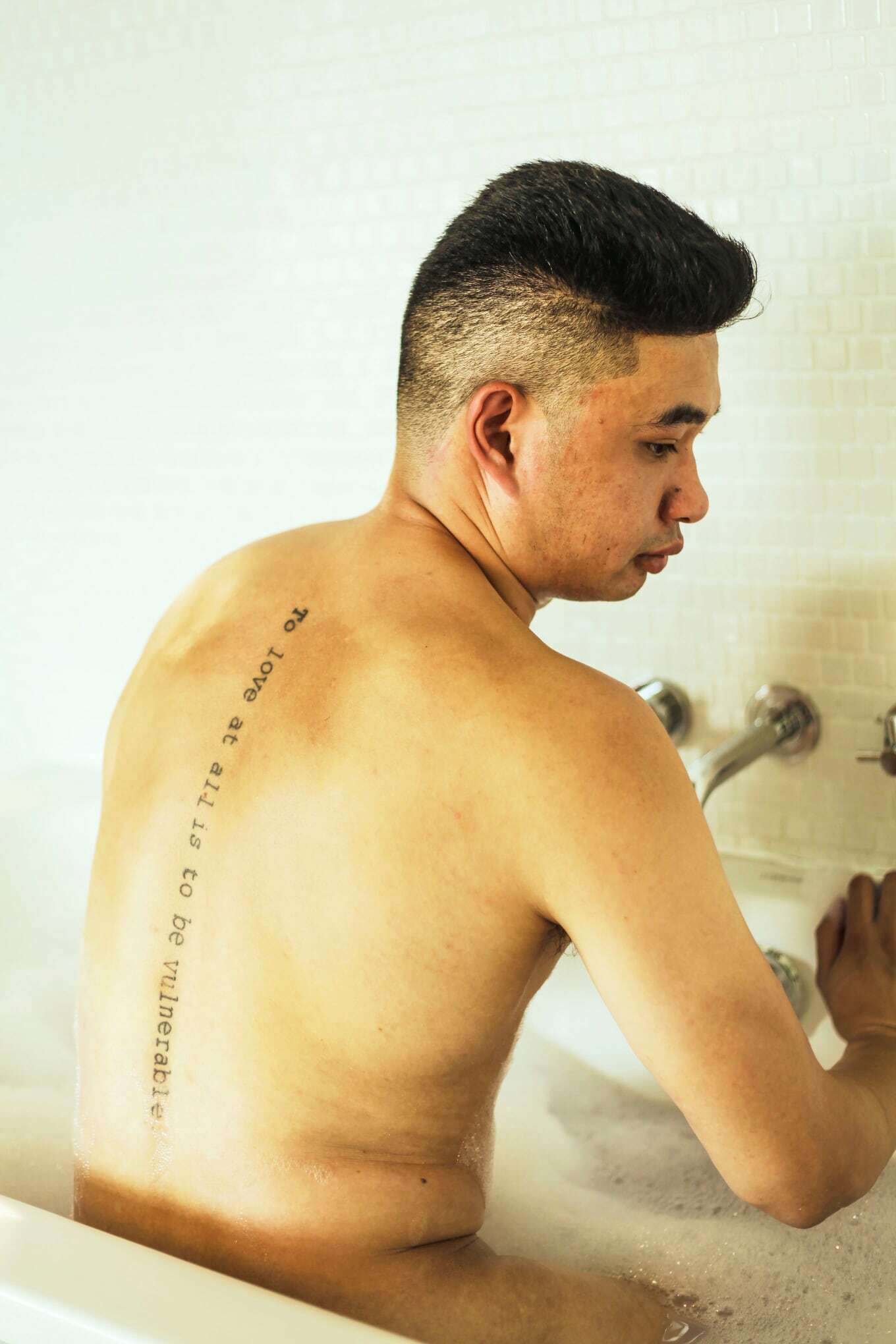
To love at all is to be vulnerable.
As we’re advocating for gender equality, what do you see as some challenges or barriers?
I feel like men having the privilege of never having to think of their gender on a day-to-day basis. Because of this, we are unequipped to talk about things that are problematic of masculinity and how we change it to break down the oppositional binary.
Another challenge is the discourse on social media and people getting thoughts out right away. We seem to believe that if you criticize something it means you don’t love it, which is a problem. I feel that for some people their gender ideal is so central to who they are that they feel as if you are attacking them rather than the thing that is problematic. The challenge for men is whether we can look at ourselves personally on a critical level, and then historically too, to ask how we got here. People like to say how do these things keep happening? And my response is that progress isn’t inevitable just because time passes. Distance and progress are two different things. Unless you keep fighting for things, they won’t change.
If we are going to change, men who have certain privileges will need to sacrifice. What I don’t like about the idea of equality is that women need to rise up to the level of men when there is nothing divine, natural, or proper about men already being on top. Men put themselves there and then made rules to keep them there. If white men are so exceptional, shouldn’t their job be to raise everyone up? For men, it’s about finding out who they are without the opposition, and for women to continue doing the work they’re doing.
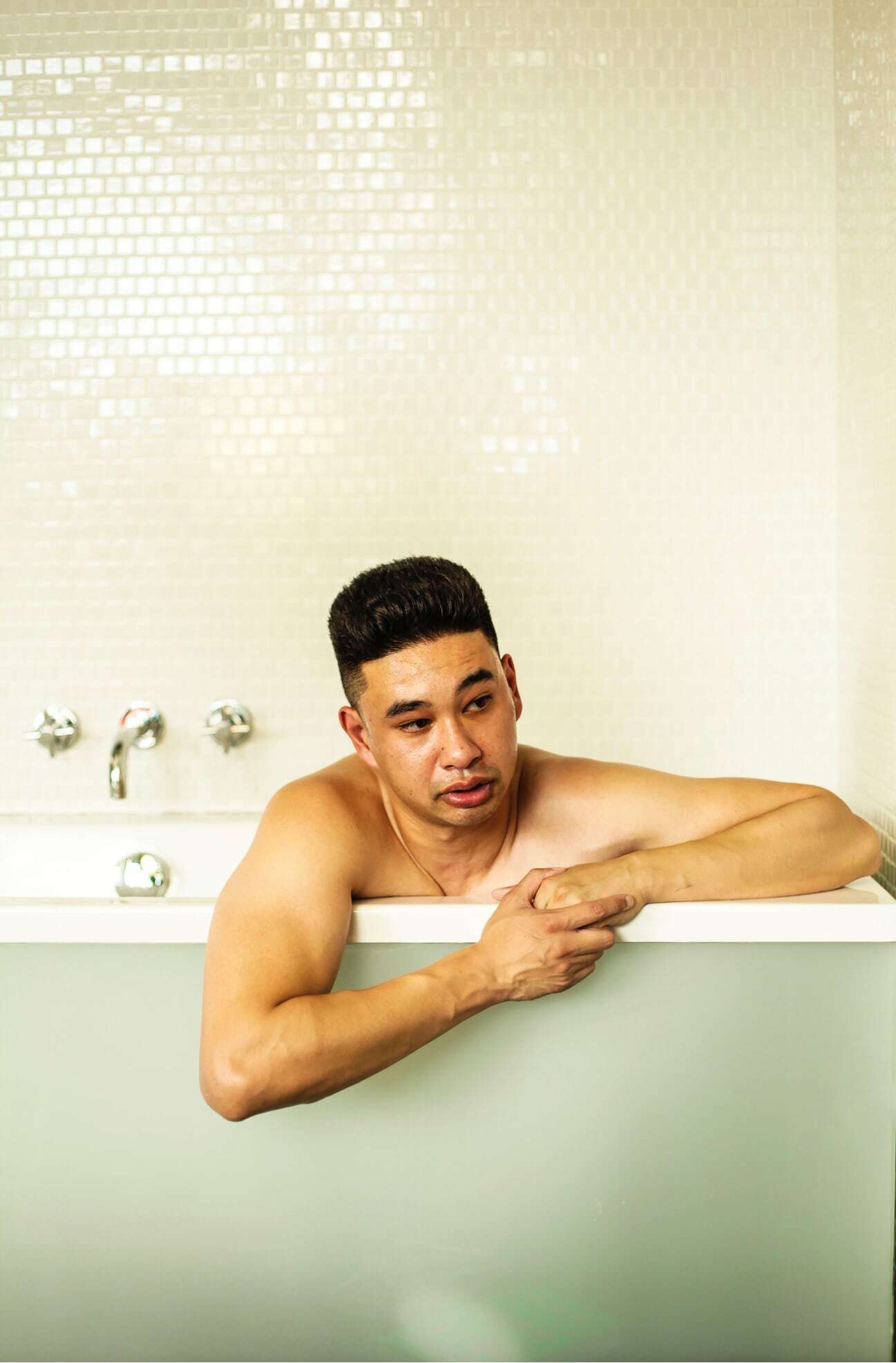
Progress isn’t inevitable just because time passes.
How can women include men in the feminist movement?
I’ve been thinking about this and I’ve decided that I’m going to reject the premise of the question. First, a story.
In Grade 3, on my day off, my mom took me to a museum and the only thing I remember is this African art piece. The description was “to not know is bad, to not want to know is worse.”
My mom drilled that into me. You need to interrogate everything in your life, including yourself. I reject this question because I feel that as a man I am a guest in the feminist movement. Men don’t need women to include them when there are enough resources for men to read and come to their own conclusions and arguments.
As well as the fact that women don’t need men to speak for them. I can’t remember the name of the director of Hamilton, but he says, you don’t need to speak for people, you just need to turn up their mics. If you’re a man and wondering why there are so many women-only events, it’s because they created that space because they need it for themselves.
Men can do their own research and amplify the voices of women doing the work. It takes nothing to Retweet something. Whenever someone gets accused of sexual assault, every woman on my timeline will share it and men will be talking about the football game as if it’s a completely different world that doesn’t involve them.
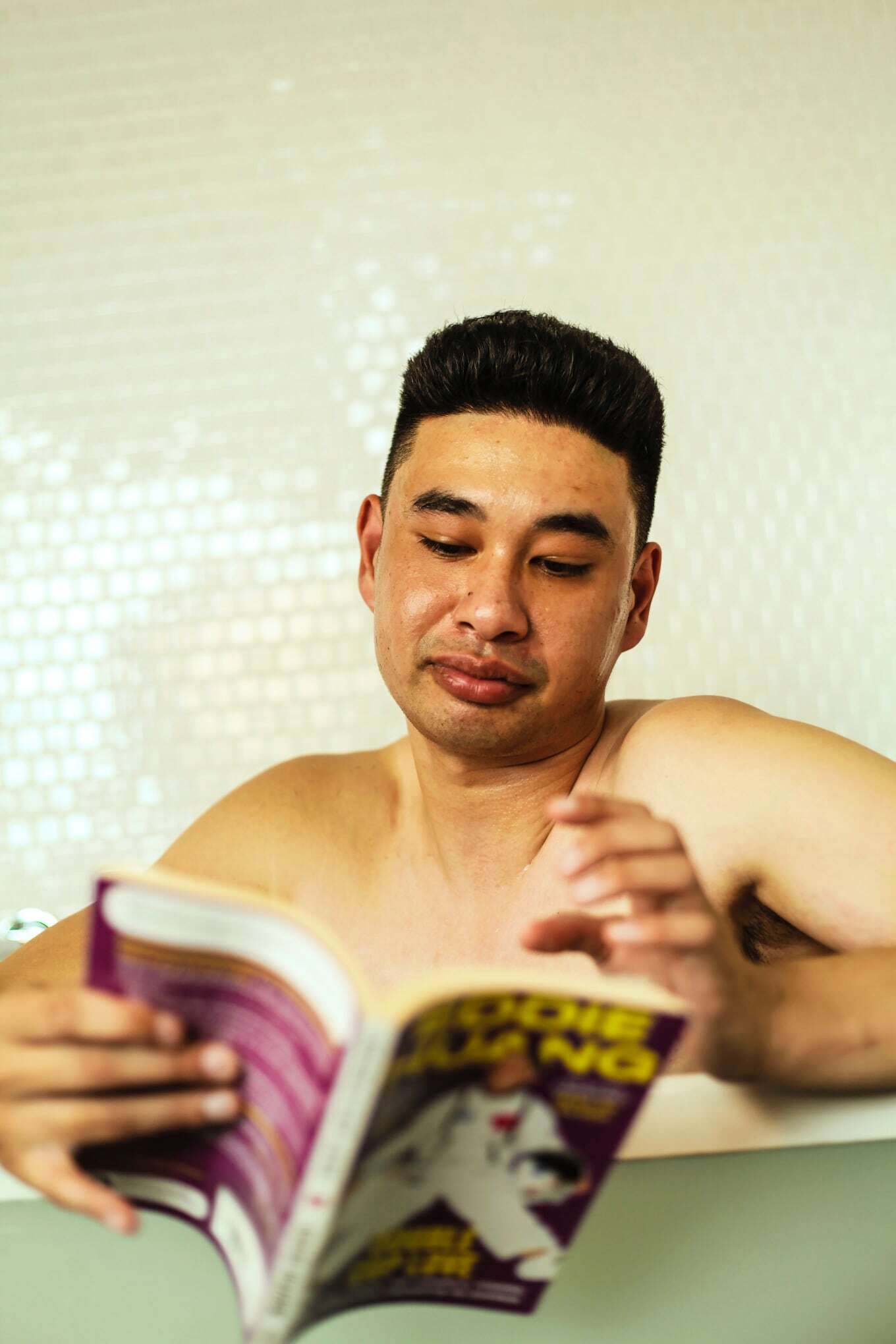
“to not know is bad, to not want to know is worse.”
How do you talk to other men in your life?
It has been a process. When I was in Calgary growing up, I wanted to fit in.
As I’ve gotten older and moved away, that and cultivated my own group of people, it’s more about practicing how you want to speak. It won’t come naturally, at first, but it's less about talking about women as objects or trophies or as something to be conquered. Moving beyond rating women on a scale of 1-10 like we might have done when we were young but talking about them as fully formed humans. You can unlearn the old ways, in fact, going back to the old ways seems foreign.
What do you think when you hear the term toxic masculinity?
I want to reframe it as patriarchal masculinity, in that, so many of our structures on this continent are colonialist ideas of gender. To be a man is great if you’re white, you’re the breadwinner of your family, you own your wife, you do none of the housework, you never talk about your feelings. That’s the skeleton of what toxic masculinity is today. To get rid of that, we need to show that men are more. They are more than that outdated skeleton.
What does "be a man" mean?
It’s one slice of my identity in a multitude of things. No one can just look at you, see your gender, and know everything about you. Gender is a big part of identity because it is what people see, but you don’t know anything about me just because you know I’m a man. Who are your favorite writers? What podcasts do you listen to? Where are you from? What’s your favorite food?
The second part is the” institution of man,” which pressures people to go into those gender roles. Men want to be vulnerable but society has conditioned us to believe we can't or shouldn’t be.
How do we reconcile these two things? You can have as much personal agency as you want, but if you get punished for it, how safe is that, really? This is the fight right now. I can do things that go against the system of a man and still be a man, but the social aspects and implications are a different story...
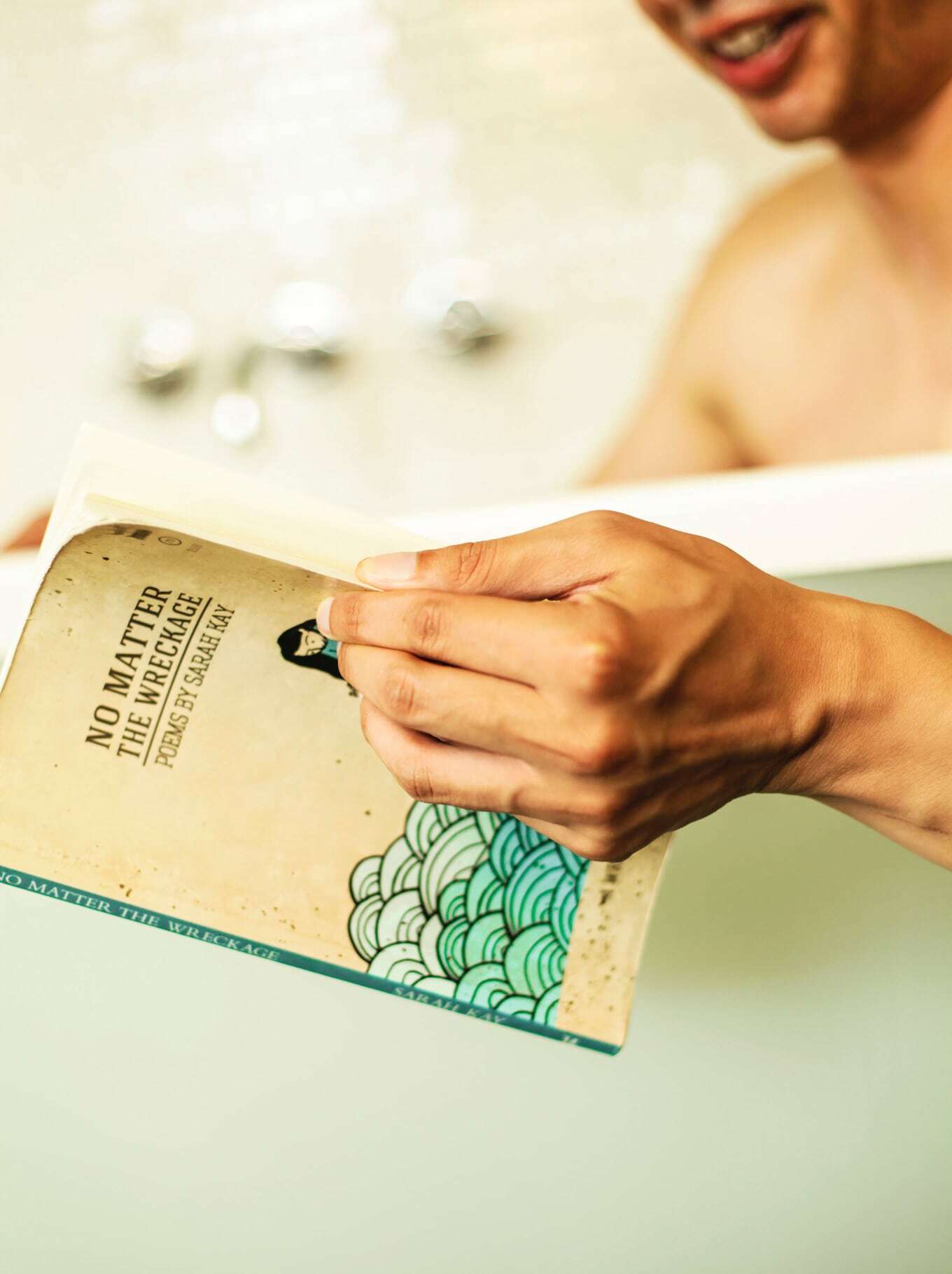
Men want to be vulnerable but society has conditioned us to believe we can't or shouldn’t be.
How can society help raise boys into men who don't view women or feminine traits as weak?
If you have a son, introduce them to stories that don’t just center around boys, so they can see an entire spectrum of what can be, including what men can be beyond heroes saving princesses. We have to give more credit to kids for how observant and smart they are, and what they pick up through your own interactions. You might think that telling a little boy not to cry comes with the greatest intentions of not wanting them to be bullied, but they might learn that crying is the part that's not okay, instead of the problem that caused the crying. Rather than cutting them off from their feelings, reassure them that their feelings are valid.
For those who want to reconcile the harmful things they’ve done, how do we move through this together?
I think the way cancel culture is portrayed in the media is not what it’s supposed to do. It’s a call to discredit, or gaslight consequences from being enacted. On a personal level, it’s setting your own personal boundaries with an artist or movie and choosing not to see something because it makes you uncomfortable. I don’t listen to Kanye West anymore because he supports Trump, but I didn’t go on Twitter and try to get everyone to cancel him. No one really gets canceled. I just made a personal choice. I think sometimes we get caught up.

The work is never done.
I think we need to self-examine. Cancel culture is a hot button to get away from consequences. Louis C.K. just hid for a few months and now he’s fine again. I don’t think cancel culture is a long-term strategy. You can’t get 100% of people to stop caring about a person. If they crossed a boundary for you, it’s up to you to analyze and do something in your own life and choose if you want to engage further or not.
I feel like people use it too frequently in that every criticism is someone trying to cancel them. We have to love the things we consume, and the art we take in, in the same way, we love our partner or family member. If something is going wrong, someone you love will tell you. It doesn’t mean you love each other less, it just means you can do something better. Especially with comedians, they complain that they can’t tell jokes anymore. My view is that you can tell jokes, but make new and better ones. We’re not saying you can’t do standup, but be better.
I don’t know why this is, but I think we see people as finished products. No one is ever a finished product. If we examine what it means to be canceled versus constructive criticism, we will see that our growth is never done and so it takes time. The purpose of your life is to finish the chapter in the book that your parents started to write. When your parents die, when they pass on, it’s up to you to reconcile what you have inherited through your family tree. The work is never done.
No one is ever a finished product.
